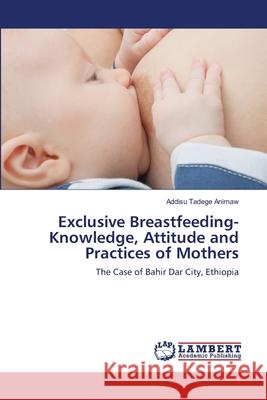Exclusive Breastfeeding-Knowledge, Attitude and Practices of Mothers » książka
Exclusive Breastfeeding-Knowledge, Attitude and Practices of Mothers
ISBN-13: 9783659350849 / Angielski / Miękka / 2013 / 72 str.
This book presents the three most important parameters of exclusive breast feeding namely knowledge, attitude and practice. Exclusive breast feeding is the practice of feeding the infant for the first six months of life on breast milk only, without any other type of food, not even water. This is the critical stage where the future of the child is determined and that is why exclusive breastfeeding is recommended as the best feeding alternative for infants up to six months. The socio-demographic and availability of health services in an area determines the level of practice of exclusive breast feeding. In relation to this, exclusive breastfeeding practices of women in urban areas are changing fast due to the change in urbanization and the growing challenge for the poor women in securing their daily bread. This book investigates the socio demographic factors in determining the knowledge, attitude and exclusive breastfeeding practice of women in Bahir Dar City (Ethiopia) and draws policy implications for improving the situation.
This book presents the three most important parameters of exclusive breast feeding namely knowledge, attitude and practice. Exclusive breast feeding is the practice of feeding the infant for the first six months of life on breast milk only, without any other type of food, not even water. This is the critical stage where the future of the child is determined and that is why exclusive breastfeeding is recommended as the best feeding alternative for infants up to six months. The socio-demographic and availability of health services in an area determines the level of practice of exclusive breast feeding. In relation to this, exclusive breastfeeding practices of women in urban areas are changing fast due to the change in urbanization and the growing challenge for the poor women in securing their daily bread. This book investigates the socio demographic factors in determining the knowledge, attitude and exclusive breastfeeding practice of women in Bahir Dar City (Ethiopia) and draws policy implications for improving the situation.











